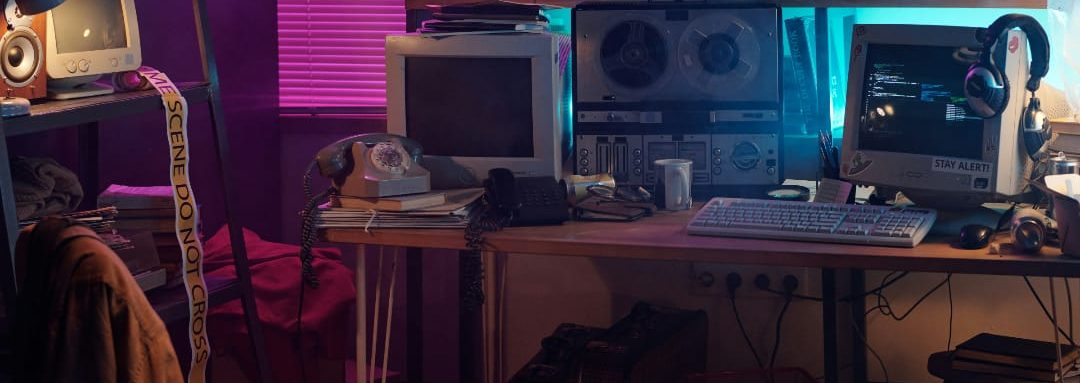The troubling allure of True Crime podcasts
What is it about True Crime podcasts? Is it the creepy orchestral music, the soft-spoken storytelling, or the sensation of seeking comfort in bed listening to something that feels so far away from our reality? I’ll admit it, I am a True Crime podcast fan, perhaps from my general interest, and intrigue in listening to a fascinating story. When done correctly, True Crime podcasts can illuminate, inform and educate, especially for stories that have slipped under the radar, or perhaps remain unsolved. However, when done wrong, these podcasts can feel exploitative, sensationalising, and worryingly gossipy.
Behind these stories, there is a victim, a family, and sensitive topics that should be left untouched.
The world of True Crime podcasting leads to murkier waters. Behind these stories, there is a victim, a family, and sensitive topics that should be left untouched. Often, these crimes are based in misogyny, involving murders of innocent young women or malicious stalking, usually the victim of a wider spree of violence from a specific individual. Whilst, we as listeners, hope some sense of justice will be served, this is very often not the case, with ‘Cold Case’ crimes having their own genre, with podcasts such as A&E’s Cold Case Files receiving over 2 million monthly downloads by the end of 2024.
The True Crime podcasting world is equally profitable. In 2024, the American-based Crime Junkie podcast, hosted by Ashley Flowers, was valued at $250 million, becoming Apple’s second most-popular podcast. Flowers, apart from a short-lived career volunteering for her local Crime Stoppers branch, had no direct link to investigation, merely an interest in crime and criminal proceedings. The thought that comes to mind is, what are their true intentions. Do they aim to publicise the perpetrator and memorialise the victim, or are the aims lost in the wider scope of profitability. And given Flowers’ unremarkable origin story, could anyone realistically start a True Crime podcast, even without a claim to the field?
To understand the motives of a crime, one needs a multitude of experts, from psychiatrists to criminologists. Without these, who are we to judge what led these crimes to be committed.
Sensationalism is a majorly problematic trope in this field. It is hard not to admit that the tropes of an abusive childhood, a poor relationship with their mother or bullying consistently speculated as themes for the motive. And whilst these tropes do occasionally lead to criminal behaviour, they are often misconceived, and seen as an obvious cause for such crimes. To understand the motives of a crime, one needs a multitude of experts, from psychiatrists to criminologists. Without these, who are we to judge what led these crimes to be committed. No one becomes a qualified detective overnight from doing a little bit of research, or even doing their own investigating while listening to a true crime podcast.
My problem with sensationalism really lies with a specific genre of True Crime podcasts, which I would like to describe as ‘True Crime and Makeup Storytimes’. For those unaware, there is a major brand of True Crime podcasting, involving various influencers doing their makeup, all while describing crimes of extreme violence. Popularised on YouTube, these podcasts are often put on wider broadcasting channels, and very regularly receive over a million views. Recently I saw a video of a woman doing a night-out makeup look tutorial, with the title being ‘Jeffrey Dahmer. Inside His Messed Up Mind & How He Almost Got Away’. Feels a bit weird right? Given that Jeffrey Dahmer is known to have at least fifteen victims, all murdered in incredibly violent ways. Well believe it or not, this video has nearly 30 million views. Comments suggest that this video ‘helps me go to sleep’ and that it sounds like ‘high school gossip’. Perhaps the calm, endearing voice, including a very awkwardly placed makeup tutorial is what we all need to fall asleep.
If the victim was remembered aptly, and the perpetrator vindicated, then any further media on the matter would be unnecessary.
In an idealist world, should we even need True Crime podcasts? If the victim was remembered aptly, and the perpetrator vindicated, then any further media on the matter would be unnecessary. Yet, we live in a world where female victims are often lost in the troubling narrative of the perpetrator, with listeners finding a peculiar interest in how they managed to get away with their crimes and often not get caught for years. If True Crime podcasts were to be more ethical, they would put more emphasis on the victim, as it is absolutely their story to tell. No more romanticisation of serial killers, or makeup tutorials in the background, all True Crime podcasts should be straight to the point and memorialising. However, when money is concerned, who knows what the future of True Crime podcasts will be. Perhaps the makeup tutorials will be replaced by something worse; we must wait and see.

Comments